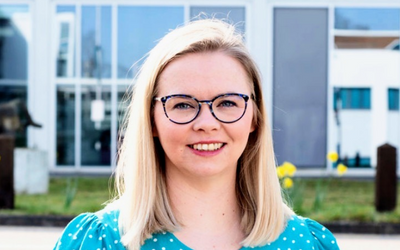You are here
- Home
- External Events and Publications
- Biennial APS Conference
- APS Conference 2023
- Conference programme
- Embedding accessibility into the curriculum: an Accessibility Tool as a checklist
Embedding accessibility into the curriculum: an Accessibility Tool as a checklist
Rhiannon Edwards, University of Bath and Vanessa Moore, The Open University
Email: rte22@bath.ac.uk; vanessa.moore@open.ac.uk
Presentation
Abstract
A more inclusive learning environment for all students begins with an accessible learning environment. In the academic year 2020/21, 18% of all students (full-time and part-time) registered to a HEI in the UK disclosed a disability (HESA, 2021). With the number of students declaring disabilities rising each year, HEIs are having to rethink curriculum design to ensure materials are both inclusive and accessible; accessibility by curriculum design can be considered proactively as opposed to reactively (Bunbury, 2020). A 10-prompt Accessibility Tool was designed to encourage academics delivering an online module to consider accessibility by design, especially in the context of students who may need to receive materials in hard-copy. The aim of the study was to establish the usability of the Tool, and whether it facilitated engagement of accessibility. We asked academics to participate in a survey (n = 22), and followed-up with semi-structured interviews (n = 16). Over 50% of participants felt the Accessibility Tool contained appropriate content, was user-friendly, and fit for purpose. The thematic analysis (Braun & Clarke, 2006) of the interviews revealed core themes focusing on training for the Tool, facilitating conversations around accessibility in curriculum design, and highlighting the specificity of the Tool for printed materials only. Results suggest the Tool does facilitate accessibility in curriculum design, enables academics to think about how interactive activities translate to print, and would be further complimented by a training brief. Once revised, the dissemination of the Tool across the HEI will enable curriculum design to include accessibility, facilitating a proactive initiative to accessible module materials as opposed to a reactive response. The Accessibility Tool can be used by all academics of varying disciplines, but it’s noted some prompts may need to be edited to accommodate for discipline specificities such as software.
References
Bunbury, S. (2020). Disability in higher education–do reasonable adjustments contribute to an inclusive curriculum?. International Journal of Inclusive Education, 24(9), 964-979.
Braun, V. and Clarke, V., (2006). Using thematic analysis in psychology. Qualitative research in psychology, 3(2), pp.77-101.
HESA (2021) HE student enrolments by personal characteristics. Available at: https://www.hesa.ac.uk/data-and-analysis/students/whos-in-he (Accessed: 26 January 2023).
Rhiannon Edwards
Senior Lecturer in Psychology, University of Bath
Rhiannon Edwards is a Senior Lecturer in Psychology at the University of Bath. Her areas of teaching and research have a health and well-being focus, with two different research interests; physical pain, and barriers and facilitators to success for students.
More recently, Rhiannon has done a lot of scholarship and research focusing on inclusivity and accessibility, with a focus on curriculum design. Rhiannon is passionate about creating learning environments which are inclusive and accessible for all students, providing them with opportunities to reach their full potential.
When not working, Rhiannon can be found launching balls for her cockapoo to chase, at the gym, or refereeing a swimming competition.
Vanessa Moore
Production Manager and Faculty Accessibility Coordinator (FASS), The Open University
Vanessa Moore is a Production Manager and a Faculty Accessibility Coordinator at The Open University in the Faculty of Arts and Social Science (FASS). Vanessa’s role focuses on accessibility within the curriculum and ensuring that every student studying a FASS module receives the same learner experience; whether they are studying online through the OU’s Virtual Learning Environment, are a student with a disability, or a student in a secure environment.
Vanessa’s current project and her work with the Accessibility Checklist ensures that students who receive printed copies of online materials achieve the same learning outcomes. Using a series of prompts, Vanessa and module team authors identify which online activities, interactives and third-party materials may need to be converted into an alternative printed format.
In her downtime Vanessa loves being outdoors, spending her time wild swimming, paddleboarding or walking her ball obsessed Mini Schnauzer, Floyd.

